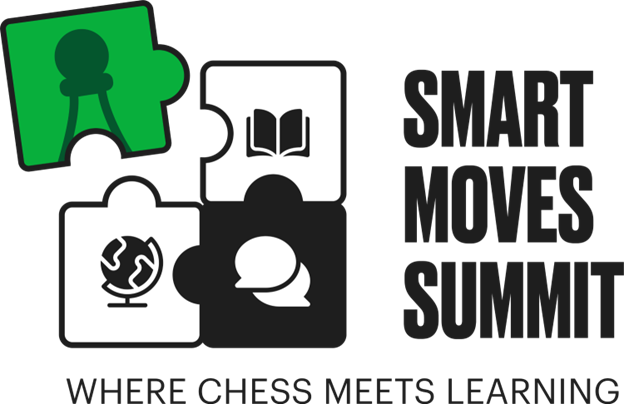
September 17, 2025
Author: Anandita Oberoi, Ph.D. is a Professor of Human Services and Psychology at Western Governors University. She discussed chess and executive functions at the Smart Moves Summit held August 4-5, 2025 in Alexandria, Virginia.

What if a centuries-old game could unlock the minds of today’s most vulnerable youth?
As a researcher, educator, and therapist, my professional journey began not in an ivory tower, but in the heart of special education classrooms and homeless shelters—places where resilience is a daily necessity and learning often feels out of reach. These frontline experiences shaped my understanding of trauma, development, and human potential.
Backed by academic training in Psychology, Sociology, Marriage and Family Therapy, and a PhD in Human and Social Services, I’ve spent years examining how young people learn, adapt, and grow. But it wasn’t until I supported my own son—who competed in the World Youth Chess Championship—that I saw how a game could become a gateway.
I decided to focus my research on how structured chess instruction can serve as an intervention to improve executive functioning skills in youth. Executive functioning refers to a set of cognitive processes that include working memory, impulse control, attention, and cognitive flexibility—skills that underpin a child’s ability to plan, focus, and regulate behavior.
I had the honor of presenting this work at the Smart Moves Summit in Alexandria, DC, where I shared findings from my study: “Chess as an Intervention to Improve Executive Functioning Among Youth.” The results were encouraging. Just 14 sessions of structured chess instruction led to statistically significant gains in working memory and decision-making, along with a measurable reduction in impulsivity. These gains go beyond the chessboard—they translate into improved academic performance, better emotional regulation, and stronger social skills.
The Stories Behind the Numbers
One of the most profound aspects of the summit was hearing firsthand accounts from educators, nonprofit leaders, ministers of education, and policymakers representing diverse regions of the world. Their stories were not only inspiring—they were a testament to courage and conviction. Many had left the security of established careers to pursue a deeper calling: to build partnerships and lead initiatives grounded in equity, inclusion, and the transformative power of learning.
Equally moving were the deeply personal narratives—stories of individuals whose lives had been reshaped by chess. For some, it was a source of healing; for others, a pathway to identity, confidence, and purpose. What struck me most was the growing recognition of chess as a meaningful tool in neurodiverse and multilingual education spaces. In these contexts, chess is not simply a game—it becomes a language of connection, a strategy for unlocking executive functioning, and a bridge between cognitive challenge and personal empowerment.
I left the summit energized by the powerful ways chess is being used to support learning and development. I’m especially interested in its potential as a cognitive intervention for at-promise youth in foster care, shelters, and other high-stress environments. These are the places where executive functioning is often affected by adversity.
Chess offers more than strategy; it creates space for resilience, regulation, and self-confidence. Yet despite its promise, it’s still underutilized in many educational and therapeutic settings.
In a forthcoming issue, I’ll share updates on emerging partnerships and initiatives expanding access to chess-based learning in communities that need it most.
